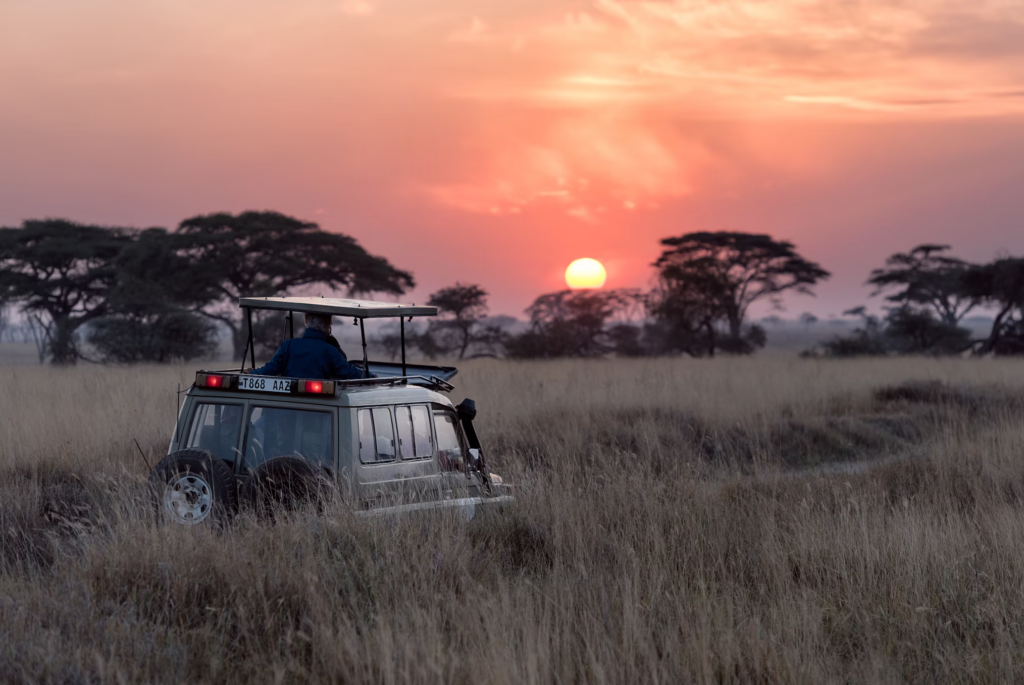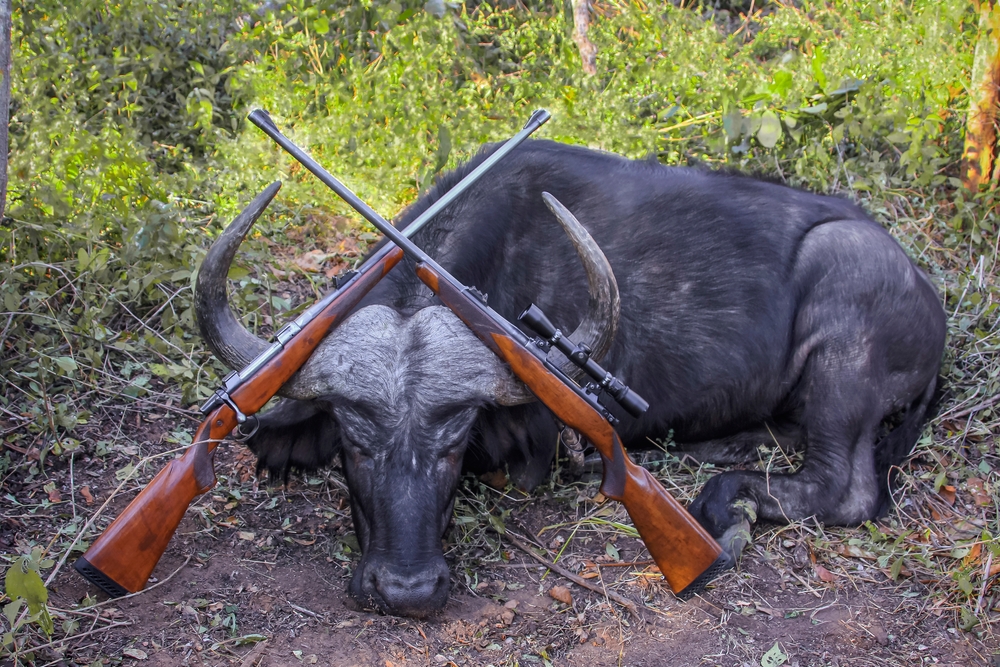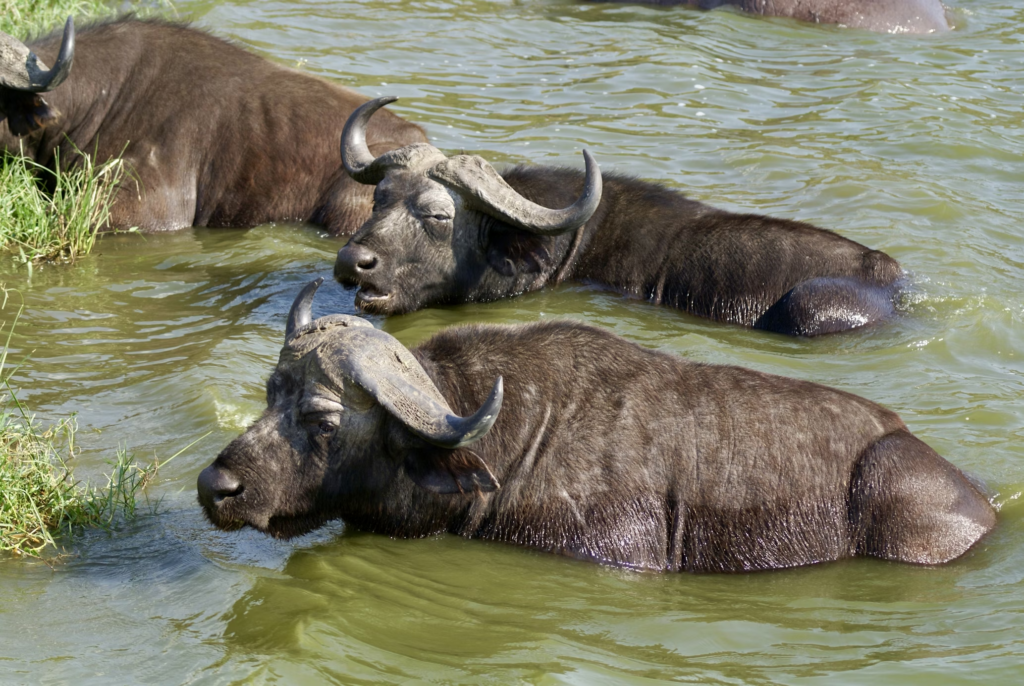The wild has always been a place of danger and unpredictability, yet it also draws those seeking the thrill of conquering its fiercest inhabitants. Trophy hunting, a controversial pastime, pits humans against some of the most powerful animals on Earth. For one seasoned hunter, however, the tables turned in an unthinkable way.
What began as a routine hunt in the African bush ended with a shocking twist that no one saw coming. This incident, steeped in irony and tragedy, has reignited fierce debates over the ethics of trophy hunting and humanity’s relationship with nature.
What really happened that day? And what does it mean for the larger conversation about wildlife conservation?
The Man Behind Guwela Safaris

A renowned figure in the world of big game hunting, the founder of Guwela Safaris spent over three decades exploring the vast wilderness of South Africa, Botswana, and Zambia. Through his company, he offered clients an exclusive taste of Africa’s untamed beauty, guiding hunts for everything from giraffes to African buffalo. His safaris promised adventure and often highlighted a commitment to conservation—though not without controversy.
Supporters saw him as an ethical hunter, balancing his craft with efforts to protect the natural world. Critics, however, questioned whether his practices crossed the line between conservationist and exploiter. This duality left his career and legacy open to debate, embodying the tension between preserving wildlife and hunting for sport.
Despite the polarized opinions, his passion for Africa’s wild places never faltered. His life’s work remains a complicated story that continues to provoke conversation and reflection.
The Fatal Encounter
On May 22, 2018, during a hunting expedition along the Levubu River in South Africa’s Limpopo Province, 54-year-old professional and his party successfully shot an African buffalo. As they prepared to load the carcass onto their vehicle, another buffalo from the same herd charged unexpectedly, goring Kleynhans in the groin. The attack severed his femoral artery, leading to his immediate death.
Kleynhans’ sister-in-law, Karen Kuhne Kleynhans, recounted the incident: “They were working on the bushes to open the animal and did not see the other buffalo. The buffalo struck him and pronged him with its horn in his groin.”
This tragic event underscores the inherent dangers of hunting African buffalo, known for their unpredictable and aggressive behavior. Weighing up to 1,300 pounds, these animals are highly protective of their herd members and have been reported to kill more hunters than any other species in Africa.
Sparks of Controversy in the Wake of His Death
The death of the founder of Guwela Safaris sent shockwaves through the hunting and conservation communities, sparking a firestorm of debate. Social media platforms became battlegrounds for clashing opinions, with some seeing his death as poetic justice. Detractors labeled him a “poacher” and celebrated what they viewed as nature’s retribution. Meanwhile, supporters mourned the loss of a man they regarded as a principled hunter and advocate for sustainable practices.
The Professional Hunters’ Association of South Africa (PHASA) issued statements praising his contributions to ethical hunting and conservation, framing his work as a model for balancing human activity with wildlife preservation. Critics, however, were unconvinced, condemning trophy hunting as a practice they believe exploits and endangers vulnerable species.
This polarizing reaction highlights the enduring complexity of public sentiment around trophy hunting. It’s a topic that stirs intense emotions, forcing society to grapple with the delicate line between conservation efforts and the morality of killing for sport.
Trophy Hunting: The Bigger Picture

Trophy hunting has long been a contentious topic, sparking fierce debates that blur the lines between conservation and exploitation. Supporters claim it plays a vital role in protecting wildlife, with hefty fees paid by hunters funding habitat preservation and anti-poaching efforts. In some regions, particularly in Africa, these programs are credited with generating much-needed revenue for local communities, offering jobs and economic stability. The International Union for Conservation of Nature (IUCN) even suggests that, under strict regulation, trophy hunting can encourage habitat protection that benefits entire ecosystems.
Critics, however, paint a different picture. Groups like Humane Society International argue that the economic benefits are often overstated, contributing only a fraction of GDP in many countries. Beyond economics, the practice raises serious ecological concerns. Hunting dominant males, such as lions or elephants, can destabilize social structures and reduce genetic diversity, potentially harming populations in the long run. Studies have shown that these disruptions ripple through animal communities, undermining the very conservation goals trophy hunting is meant to support.
The debate becomes even more charged when high-profile incidents, like the killing of Cecil the Lion, come into play. These moments ignite public outrage, leading to calls for bans on trophy imports and stricter oversight. For many, the idea of hunting iconic animals for sport is morally indefensible, no matter the potential conservation benefits.
This enduring controversy forces us to confront tough questions: Can killing animals ever truly support their survival? Is there a better way to fund conservation without the ethical baggage? As the conversation continues, one thing is clear—trophy hunting remains one of the most polarizing issues in the fight to protect our planet’s wildlife.
The African Buffalo: Nature’s Fury

The African buffalo (Syncerus caffer), often referred to as the Cape buffalo, is a formidable presence in the African wilderness. Weighing up to 1,300 pounds, these animals are known for their unpredictable temperament and formidable strength.
African buffaloes are characterized by their robust build and distinctive horns, which can span over a meter in length. Their unpredictable nature and strong protective instincts make them one of the most dangerous animals to hunt. They are known to attack humans by circling back on their victims before charging, then trampling or goring them to death using their sharp horns.
Living in large herds, African buffaloes exhibit complex social structures. They are highly protective of their members, especially the young and vulnerable. When threatened, the herd often engages in mobbing behavior, collectively confronting and driving away predators. This coordinated defense mechanism underscores their reputation as formidable opponents in the wild.
Encounters between humans and African buffaloes can be perilous. Their unpredictable aggression has led to numerous fatal incidents, particularly among hunters. The incident involving this professional hunter, who was fatally gored by a buffalo from the same herd he had hunted, highlights the inherent dangers of interacting with these powerful animals.
When Nature Strikes Back
This story is both a cautionary tale and a point of reflection. His tragic death at the horns of an African buffalo highlights the volatile relationship between humans and the natural world. Trophy hunting remains a polarizing topic, raising questions about ethics, conservation, and the unpredictable dangers of wildlife encounters.
This incident has reignited debates over the value and morality of trophy hunting. While proponents argue its potential for conservation funding, critics point out the imbalance it creates within ecosystems and its ethical ramifications. What remains clear is that the wilderness is not a place to be underestimated.
As society continues to grapple with these questions, stories like this serve as reminders of nature’s raw power. They challenge us to reconsider how we approach wildlife conservation, human recreation, and our responsibilities as stewards of the natural world. Perhaps the ultimate lesson here is that while humans may seek to dominate nature, it has a way of reminding us who is truly in control.


